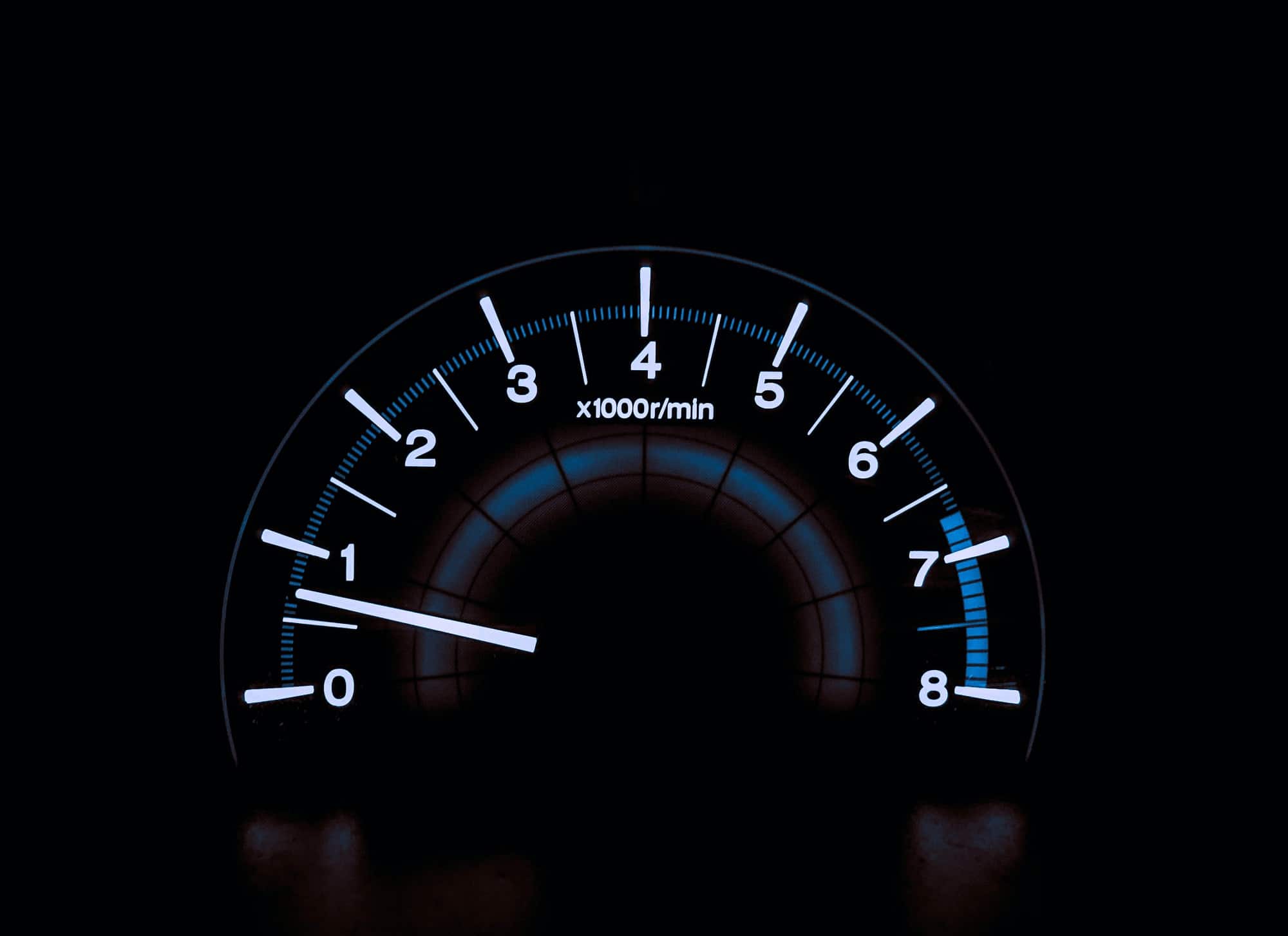Have you ever noticed the significant difference between your car speedometer that the speed communicated to you by your GPS or Sat-Nav (satellite navigation)? If you have, do not fret; nothing is wrong with your speedometer, at least not yet. So, is your speedometer accurate? Which is correct: your GPS or your speedometer? In most cases, your speedometer is inaccurate as it reports a much higher speed than your vehicle is traveling at. But then, let us look at how a car speedometer works.
How a Car Speedometer Works
A car speedometer works by measuring the rotations of the wheel, driveshaft, or axle. The speedometer measures how fast those wheels are spinning by using the speed sensor in the transmission. As you well know, speed is defined as the measurement of distance over time. But a speedometer does not measure precisely how fast you travel from one point to another. Your vehicle takes these recorded rotations and applies an excellent arithmetic dose, and the speed is displayed accordingly.
However, the accuracy of a car speedometer depends heavily on the wheels’ wheels or the wheels’ diameter. If you have owned a car for a few years, the speedometer readout will be different now than when you first drove it off the production line or car dealership. But that is if you have not changed the wheel since you purchased the vehicle. This implies that if you change the wheel or tires, the speedometer reading will also vary accordingly. If the new tires come with a larger diameter than the old ones, a faster speed is recorded, and vice versa.
Having under-inflated tires or smaller tires results in a much slower recorded speed. The diameter of the wheels can also change, depending on tire pressure, size, and wear. And these can throw off the accuracy of your speedometer. That is right; a minute change in your car tire’s diameter – by several millimeters – results in incorrect speed recording. This error margin is, however, factored in how vehicle makers calibrate their speedometers.
When you are traveling at 30 mph, the wheels will be rotating at least 6-7 times per second. And this can quickly make a considerable difference of several miles per hour. There is a difference between a speedometer and an odometer. The latter – i.e., odometer – reveals the distance your automobile has traveled while the speedometer shows how fast your car is traveling. Odometer readings are uniquely designed to be accurate, while speedometers are generally calibrated to fudge numbers a little.
Common Car Speedometer Problems
Speedometers can have issues that are generally caused by the numerous components that make up the mechanism. At times, a faulty speedometer head can lead to speedometers not working at all. Another common problem that the speed indicator has is linked to the ‘Check Engine Light.’ When this light turns on, the speedometer stops working. This usually happens when speed sensors no longer send information to the vehicle’s computer. The speed cable may need a replacement when this problem occurs.
Signs and Symptoms of a Bad or Failing Speedometer Sensor
If you are observant, you will notice a few signs which indicate that your speedometer is not working correctly. These include:
-
- Check Engine Light going on and off.
- The speedometer behaving erratically while you are still driving,
- The speedometer stops working entirely,
- Overdrive light turning on and off for no apparent reason.
When you notice these signs as displayed on your dashboard, it may be likely that your speedometer has stopped functioning correctly.
Is Your Speedometer Accurate?
Your car speedometer may have an error of plus or minus 4 percent in the United States. This indicates that you could be going faster than what the speedometer reading reveals to you for much lower speeds. But for higher speeds, you could be going 3 miles per hour slower at the minimum. Tires are primarily responsible for this, as under-inflated or over-inflated tires can significantly impact your speedometer’s readout.
The calibration of a speedometer is based on the factory tires of your automobile. After some time, the treads on your vehicle’s factory tires get worn down and will require replacement. Worn tires have been proven to throw off speedometer readouts. Replacing the old tires with new ones that are not remarkably rated for your car can also make your speedometer inaccurate. Here is the big question: how, rigorously, do you test your speedometer’s accuracy?
Testing Speedometer Accuracy
If you have several reasons to suspect that your speedometer is somewhat inaccurate, you can carry out this test while driving, as it is the best way to determine whether your speedometer is accurate or not.
-
- Get your hands on a stopwatch.
- As soon as you pass a mile marker on the highway, start the stopwatch.
- Then, stop the watch when you pass the next mile marker.
- You can take the second hand of the stopwatch as your speed. It would be an excellent idea to bring a friend along for the ride to avoid distractions.
A blown a fuse or damaged wiring is more than enough to throw your speedometer out of whack. A malfunctioning engine control unit or sensor could report erroneous speed. To take care of this, have an auto shop or technician look at your vehicle. If there is an issue with your speedometer, the mechanic will fix it for you ASAP.
The Bottom Line
So, is your speedometer accurate? Well, you have read all the reasons why your speedometer could be accurate or inaccurate. This is not to imply that you should not trust your speedometer. It only means that you need to be careful anytime you are driving on the highway. The type of tires you use could also impact the accuracy of your speedometer. Make sure you go for factor or model-specified tires for your vehicle. This ensures that your speedometer will give more accurate readouts than when you use unrated automobile tires.
Ready to experience top-notch transmission solutions and expert support?


